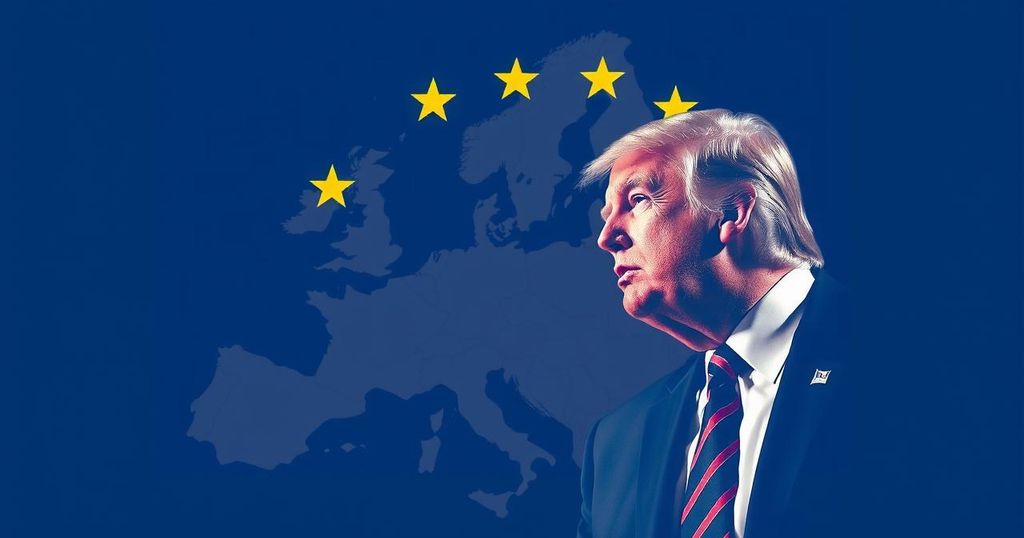The Implications of Trump’s Election on European Protectionism

Donald Trump’s election signals a potential rise in protectionism, posing significant challenges for the EU amid its economic struggles. His promised tariffs could disrupt global trade dynamics and harm consumer purchasing power. The article underscores the limited economic efficacy of such measures while stressing the need for the EU to devise strategic responses to Trump’s trade policies.
The election of Donald Trump is poised to usher in a wave of protectionism reminiscent of the 1930s. With promises to impose significant tariffs on imports—ranging from 10% to as high as 60% on certain products—his policies threaten to destabilize the global economy, directly challenging the European Union’s fragile economic landscape. The European Union, already grappling with a lack of robust leadership and sluggish economic growth, finds itself in a precarious position. In light of increasing competition from Chinese exports and internal challenges, the EU must devise an effective strategy to counter this emerging threat. The inability of the 27 member states to present a united front amplifies their vulnerability in navigating this new terrain. During his campaign, Trump continually extolled the benefits of tariffs, declaring them to be the “most beautiful word in the dictionary.” He posited that these taxes aid in lowering the trade deficit, repatriating jobs, and bolstering government revenues. However, such claims may reflect the misguided optimism often associated with the unsubstantiated promises of snake oil salesmen. In reality, tariffs contribute minimally to improving a nation’s trade balance, which is predominantly influenced by macroeconomic factors such as savings, investment, and consumption patterns. Increased consumer and business spending in the U.S., buoyed by lenient fiscal policy and significant debt expansion, has resulted in a growing trade deficit that tariffs alone cannot rectify. Attempting to address the twin deficits—fiscal and trade—through customs barriers resembles the futile effort of emptying the ocean with a discarded teaspoon. Trump’s first term illustrated the limited efficacy of his protectionist measures; the U.S. trade deficit expanded by a quarter, and industrial employment failed to see a corresponding rise. The cost of imported goods increased American production expenses, revealing that the financial burden fell upon U.S. consumers rather than exporters. While the initial application of protectionist policies yielded negligible economic success, it has proved politically effective, with Trump’s base clamoring for more stringent measures. The Centre for Prospective Studies and International Information (CEPII) indicated that these tariffs might stifle growth while leading to a considerable rise in consumer prices for imported goods. Estimates by the National Retail Federation suggest these measures could diminish U.S. consumer purchasing power by as much as $78 billion across several categories, particularly clothing and appliances. Ironically, while Trump campaigned on a platform to combat inflation, his protective policies may inadvertently exacerbate it.
The article discusses how Donald Trump’s recent election may precipitate a return to protectionist trade policies, reminiscent of historical economic downturns. The implications of his proposed tariffs pose significant challenges for the European Union, which is currently experiencing a period of economic stagnation and uncertainty. It argues that while tariffs might be politically appealing, they often do not translate into economic success, particularly given the complexities of trade balances influenced by broader macroeconomic factors. The article emphasizes the need for the EU to develop countermeasures in order to safeguard its economic interests amid Trump’s aggressive trade stances.
In summary, Donald Trump’s election heralds a potential shift towards aggressive protectionist policies, placing considerable pressure on the European Union to respond effectively to this threat. While tariffs are pitched as solutions to economic woes, their actual impact suggests a more complex reality that may not resolve the underlying issues such as trade deficits. Consequently, the EU’s ability to unify and formulate a robust strategy will be vital as it navigates this challenging economic landscape.
Original Source: www.lemonde.fr








